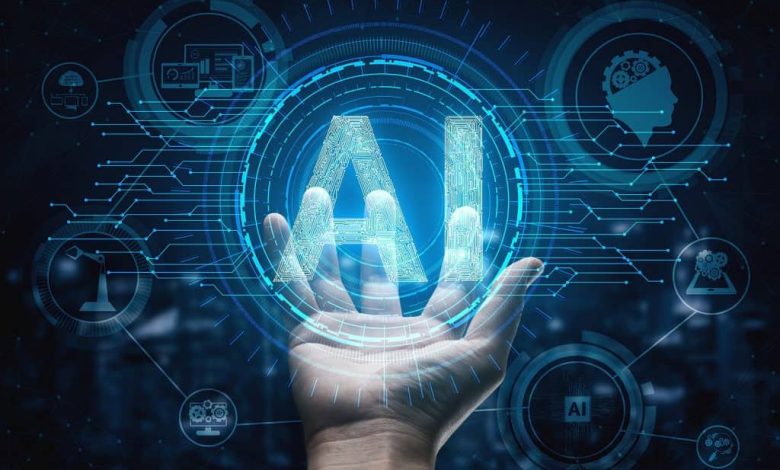A Master’s in Artificial Intelligence Helps in Reducing Human Error

Artificial intelligence has become a pivotal segment of contemporary technology. The master’s degree program in AI enables individuals with the requisite knowledge and skills for constructing AI solutions to execute more complex tasks with accuracy and reliable results. When artificial intelligence is integrated into diverse fields for smoother functioning, it results in efficiency and accuracy in decision-making. The most highlighted point of AI functioning is its ability to minimize human errors irrespective of the domain.
This article will discuss the perks of the master’s degree program in AI and how enrolling in this program can help you master the art of creating software and other applications with minimal human error. This technology can be used in BFSI, healthcare, transportation, manufacturing, etc.
1. Healthcare Sector: Improving Prognosis Precision
Human inaccuracy in the prognosis of a disease can lead to serious consequences like wrong prognosis and incorrect treatment strategy. So, this further increases the complications of the disease for that patient. Artificial intelligence takes the edge off these risks. Advanced AI algorithms work on larger data sets of medical history and visualization, helping doctors recognize diseases more precisely. Let’s take an example of AI in the healthcare field, where these technologies have helped doctors recognize cancers with radiology images and by analyzing medical track records.
Examples: AI-based image reconstruction, AI-based automatic measurement, forecasting & managing patient flow, etc.
2. Finance Sector: Decreasing Fraud & Improving Strategizing
Artificial intelligence occupies the place where critical decision-making is necessary. Many times, a single false human decision has led to adequate monetary losses and potential security threats. AI dehumanizes and streamlines the process by giving information that humans mostly tend to overlook. Pursuing a master’s degree program in AI trains you how to execute these algorithms and focus on cybersecurity, data analysis, etc. AI-based technologies help identify fraudulent activities by analyzing credit scores and repayment anomalies. Generally, AI-based technologies can predict market patterns, credit risks, and automated trading.
Examples: Vena Insights, Domo, Trillion, etc.
3. Manufacturing Sector: Increasing Productivity & Accuracy
The product quality depends on various factors, including coordination between manufacturing units, process streamlining, manual handling of production machines, etc. Each stage requires human interference; thus, there is always some scope for human error in operating these units. These faults mainly result in defective products, improper packaging, high product costs, and production delays. A master’s in artificial intelligence tells you how to automate the process of manufacturing. The AI technologies in manufacturing assist in automatic quality control, streamlining supply chains, etc. It increases the productivity and accuracy of the production process.
Examples: ClickUp, Odoo, Asana, etc.
4. Transit Sector: Enhancing Safety and Efficacy
AI has made its way into the transportation industry. Self-driving cars are the biggest example of AI integration in the transit sector. These AI technologies depend on sensors, ML algorithms, and real-time data to analyze driving-related risks and give warnings beforehand. The AI technologies in the transit industry often require a blend of machine learning and robotics. The ADAS (advanced driving-assistance systems) are among the names that are popular in the transportation industry. Professionals with master’s in artificial intelligence are well-equipped to seamlessly blend ML, robotics, and artificial intelligence with safety and efficacy.
Examples: Traffic detection, Road condition monitoring, Traffic flow analysis, etc.
5. Inter-Industrial Application: Data Analysis & Support
Regardless of the domain, artificial intelligence has the potential to handle huge amounts of data sets and analyze them based on the set criteria to derive meaningful information. Thus also helping in evidence-based decision-making across various industries. Project management personnel mostly use this kind of AI innovation to understand project timelines, deliverables, deadlines, project completion tenure, etc. The AI systems inspect trends, predict outcomes, and suggest actions, thereby mitigating the threat of human-induced error, functional decisions, and the possibility of project overruns.
Examples: ClickUp, Monday, Basecamp, etc.
Apart from this, individuals must learn how to develop an AI solution that complies with ethical and responsible practices. Although it helps a lot in minimalizing human error and increasing accuracy, associated challenges come with it. These challenges are often responsible practices and respecting the confidentiality of the organizational data. Thus, it becomes crucial that the artificial intelligence system that is being constructed be crystal clear, neutral, and answerable. The master’s in artificial intelligence includes ethical practices of these technologies in their modules. This instructs aspirants to develop systems that are both effective and ethical.
Conclusion (Artificial Intelligence)
The conduct master’s degree program in AI is vital for eliminating human-induced errors in the functioning of diverse industrial segments. This program trains you on some essential concepts you should know if you are targeting to construct any AI technologies. Machine learning, robotics, data analysis, and data visualization are among the modules, that a master’s in artificial intelligence curriculum focuses on. As artificial intelligence continues to join us in everyday functionalities of human life, the ethical practices of the same should be taken with seriousness. If individuals use these technologies mindfully, then artificial intelligence can be the greatest revolution that mankind has ever seen.


